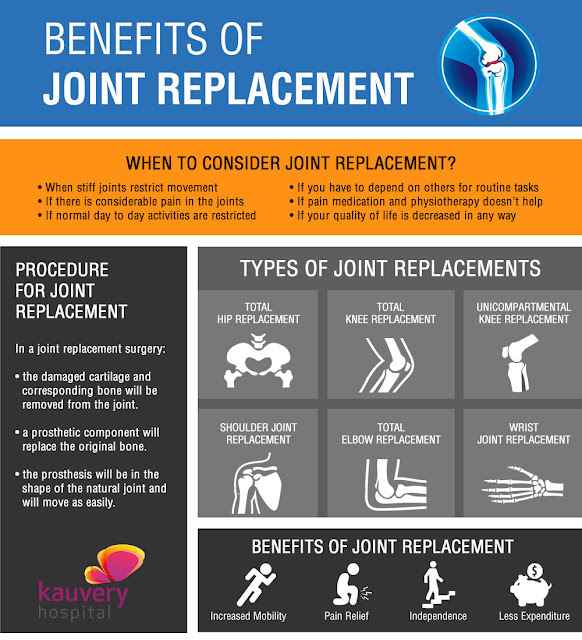When to consider joint replacement?
You should consider joint replacement
- When stiff joints restrict movement
- If there is considerable pain in the joints
- If normal day to day activities are restricted
- If you have to depend on others for routine tasks
- If pain medication and physiotherapy doesn’t help
- If you quality of life is decreased in any way
Procedure for joint replacement
In a joint replacement surgery
- the damaged cartilage and corresponding bone will be removed from the joint.
- a prosthetic component will replace the original bone.
- the prosthesis will be in the shape of the natural joint and will move as easily.
Types of joint replacements
- Total Hip Replacement
- Total Knee Replacement
- Unicompartmental Knee Replacement
- Shoulder Joint Replacement
- Reverse Total Shoulder Replacement
- Total Elbow Replacement
- Wrist Joint Replacement (Wrist Arthroplasty)
Benefits or joint replacement
- Increased Mobility: Stiffness due to injuries or arthritis or age will be relieved
- Pain relief: There is considerable decrease in pain to no pain at all
- Independence: Dependence on others decreases as the person is able to handle activities on their own without stiffness or pain
- Less expenditure in the long run: Weigh the cost of the surgery against years of doctor’s bills and physiotherapy and you will find that replacing the joint is less expensive.




















